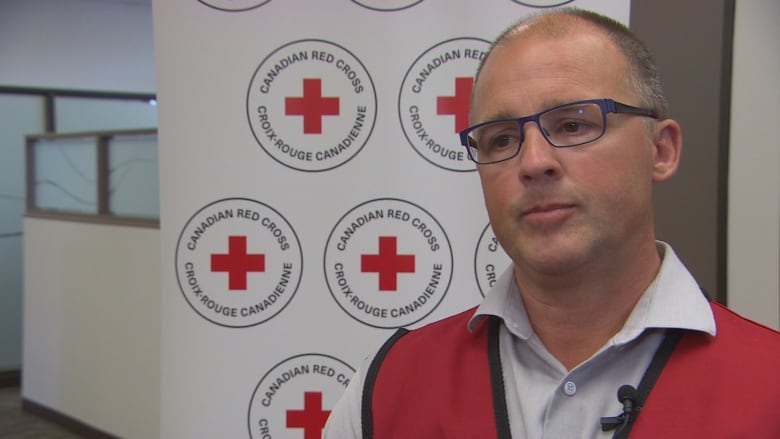Another 1,500 evacuated from Garden Hill First Nation due to wildfire
Number of evacuees now expected to reach 5,000
The Canadian Red Cross says an additional 1,500 people from the Garden Hill First Nation have been given evacuation orders due to wildfire smoke in the Island Lake area.
- How to help wildfire evacuees from Manitoba First Nations
- Winnipeg emergency shelters take in wave of wildfire evacuees
Most of the members have health concerns and they're being flown out to Winnipeg at the request of the community which is about 470 kilometres northeast of Winnipeg.
The evacuees yet to come are Priority 2, said Shawn Feely, vice-president (Manitoba and Nunavut) for the Canadian Red Cross — people with lower levels of health concerns, including small children and the elderly.
'Smoke event'

As of 1 p.m. Saturday, at least five or six planes had landed to bring those evacuees south and to the two evacuation centres, the Winnipeg Convention Centre and an indoor soccer facility on Leila Avenue. Feely said spaces are opening up at the centres as people find space to stay with family members and as hotel rooms free up.
About 900 people are expected to reach Winnipeg Saturday. On Sunday, the Red Cross will begin evacuating people to other locations.
They don't anticipate opening a third shelter, Feely said. The Red Cross is making arrangements for hotel rooms outside the city of Winnipeg, Feely said, though he can't yet confirm where.
The total number of evacuees is set to reach 5,000, including individuals from the Wasagamack and St. Theresa Point First Nations. That's in addition to 850 people that have been evacuated due to smoke near Poplar River First Nation.
The fire has grown since Thursday, according to a provincial spokesperson, from 23,000 hectares to 28,000 hectares Satrurday.
400 firefighters, 350 volunteers
There was rain overnight, but a provincial official says it had little impact on the fire.

Firefighting efforts, involving 400 firefighters, are focused on the south part of the fire, closest to Wasagamack. They're using sprinkler kits, with nine water bombers and 21 other aircraft, mostly helicopters.
The Red Cross said it has mobilized 350 volunteers, including some from across the country; 150 of those are split between the two shelters in Winnipeg.
Feely said the soccer complex was chosen as a second site because it has showers, which have presented a challenge at the Convention Centre site.
Going forward, he said that's where most of the evaucees will be directed.
Stress levels high
He said evacuees' stress levels are still high, but the situation is improving as people settle in and more people are moved to hotels.
"When they first arrived, they're still shaken, but felt relieved," Feely said. "They're settling in now, they're visiting with each other, they're more relaxed."
Feely said this round of evacuees had more time to prepare, so they'll have more luggage and important items like medications.
Ursula Wood from St. Theresa Point spent her first night at the Leila Avenue evacuation centre last night.

"Hectic over there, everybody scrambling all over the place, and you know, just trying to get on a plane. And it was, I don't know, scary at the same time. Everything just happening all at once," she said.
She said being with family there helps to make the stressful situation a little easier.
"Everybody's company, just to, you know, try to make it feel like home, so nobody won't be lonely for home."
Feely said they hope people won't be away from home more than a few weeks.
"That's all up to Mother Nature," he said. "More rain is needed. So we are planning for two weeks. Whether or not we need two weeks, that is up in the air right now."
With files from Geneviève Lapalme and Erin Brohman